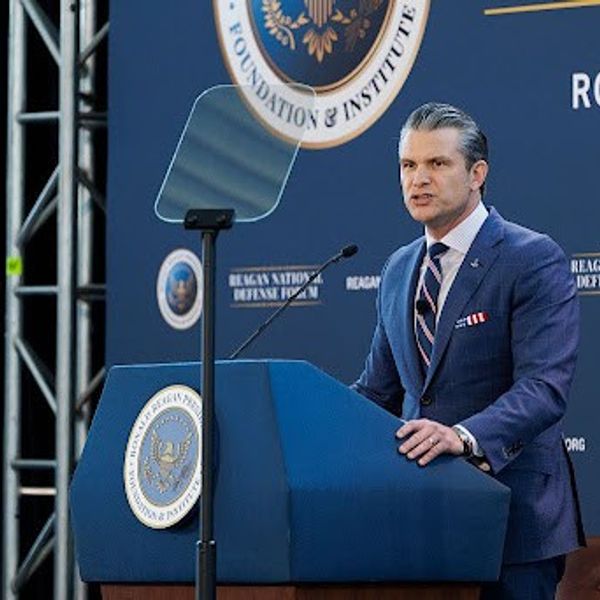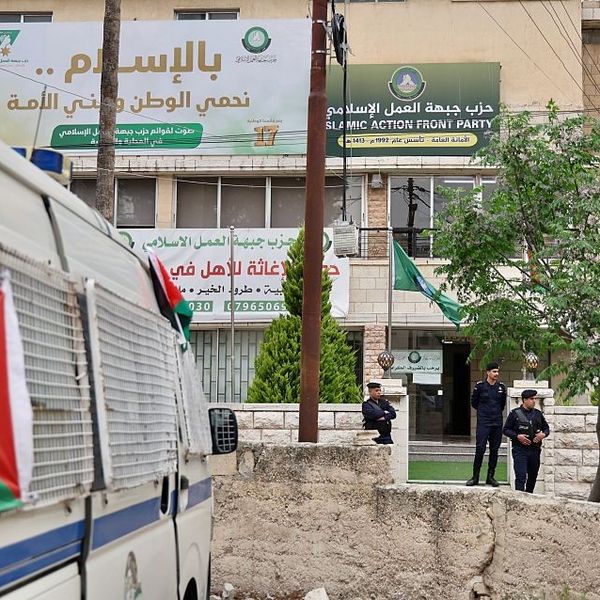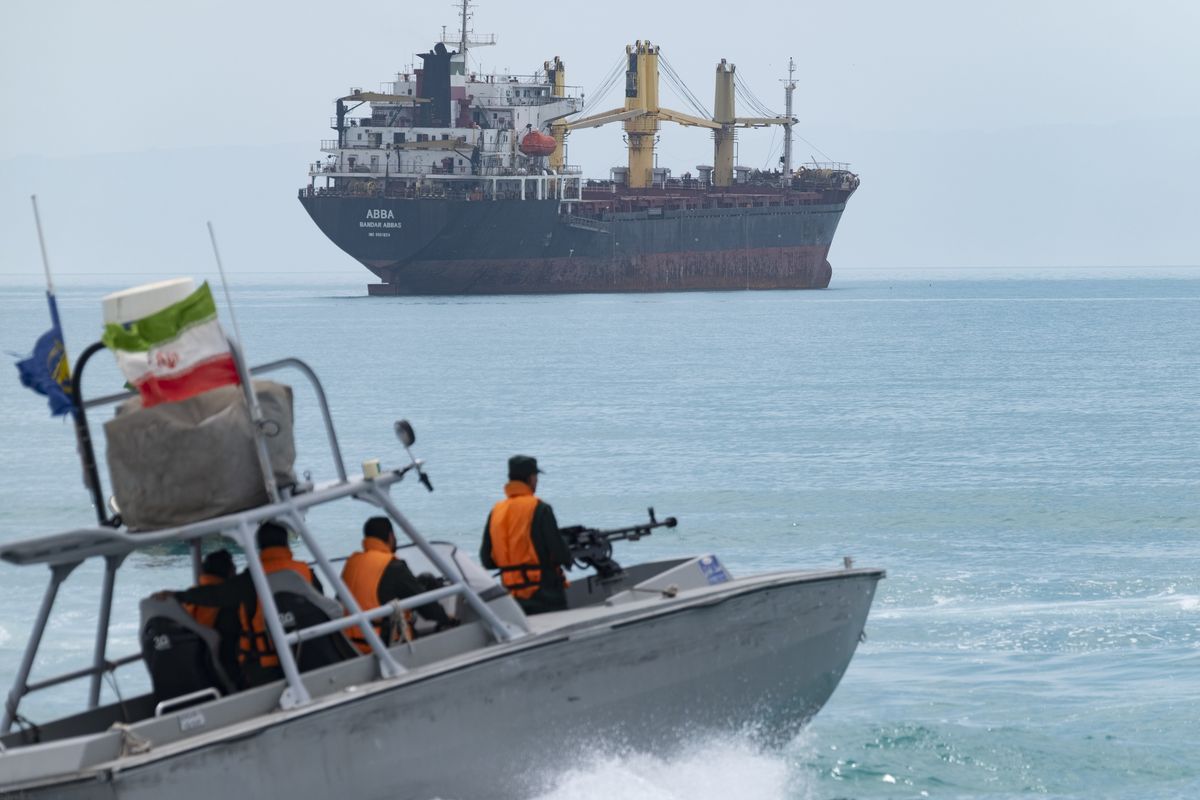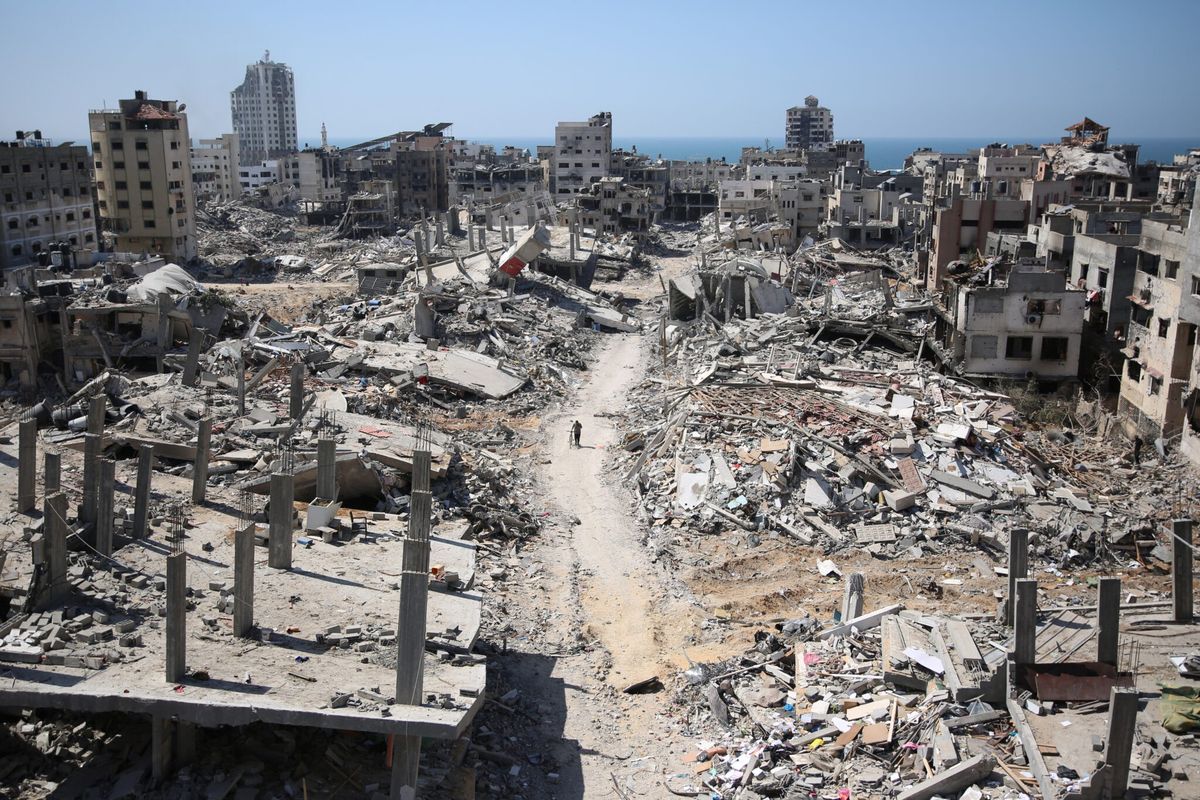The Cipher Brief recently hosted a Subscriber+Members briefing with former Senior CIA Officer Glenn Corn, who served as the president's senior representative on Intelligence and Security Issues. Among the topics Corn addressed: what happens if Iranian-backed Hezbollah attacks Israel from the north and how is this conflict playing into the hands of both Moscow and Tehran? Here is some of what he had to say. Our interview has been edited for length and clarity.
The Cipher Brief: There have been concerns since the October 7 terrorist attacks by Hamas that another front to this war might open up in the north of Israel with Hezbollah. Both Hamas and Hezbollah are backed by Iran. If Hezbollah were to attack Israel as it continues its war on Hamas, what would that mean?
Corn: It's pretty clear that if Hezbollah opens up a full front in the north against Israel, this will be a strategic game changer for the Israelis. The Israelis are going to have to respond in a very large manner, and my own opinion is that the United States will also have to get directly involved to help the Israelis.
Hezbollah has a lot of capabilities with rockets and missiles. They have very well-trained fighters. We can't forget that they are a terrorist group that just tried to attack Jewish targets in Brazil. Thanks to the good work of the Israelis and their Brazilian partners, they were able to stop a terrorist attack there.
Hezbollah has conducted attacks against Israeli and Jewish targets worldwide and we can’t forget that they have attacked US targets in the past and they present a very dangerous threat to the United States. In my assessment, if there is a conflict between the United States and Iran, Hezbollah will be used as a tool for the Iranians. These are all things we have to consider.
The other issue here is for the Lebanese people. I don't think the majority of Lebanese people want Hezbollah to go to war with Israel or to expand the war that they're already in because we have to be honest, they've been at war for a long time and they're in a state of war.
What's important is what Iran tells Hezbollah to do because in my own assessment, Hezbollah and its leader Hassan Nassah, are very strategic in their thinking and very disciplined. If they get the order from Tehran to expand that northern front, they'll do it. Unfortunately, I think that they are more loyal to Tehran than they are to the people of Lebanon. And the last time that they had a significant war with the Israelis in 2006, the Israelis went right for the infrastructure of Beirut. Everybody, the Sunni, the Shia, and the Christians in Lebanon all suffered as a result of what Hezbollah did at that time. And I think that unfortunately they probably will suffer again. We don't want that.
We have to watch very carefully the conflict as it's been playing out. There have been a number of attacks across the southern border into Israel. Some of those I believe, are Hezbollah. Some are Palestinian groups that are in Hezbollah territory. And I would assess that Hezbollah could stop those attacks from happening if they wanted to, given their control over southern Lebanon. They're not per se, Hezbollah launching the attacks or the rockets, but definitely Hezbollah is not stopping them. And there's always the danger for escalation from both sides.
The Cipher Brief: Have there been any surprises for you since Hamas launched this unexpected terrorist attack against Israel on October 7? Meaning surprises in the way that this war has evolved?
Corn: Yes. I think that the Iranians and Hamas, their proxies, expected a strong reaction from Israel and they're using it to their best benefit in the information space. They're trying to shift the narrative from Sunni Shia conflict to everybody against the Israelis. I think they understood that for a long time in the West there has been an almost anti-Israeli sentiment with a lot of sympathy for the Palestinians and not much for the state of Israel. They knew that Israeli Prime Minister Benjamin Netanyahu was not very popular.
We should talk about what's going on in Turkey, which is not an Arab country, but it's a Muslim country. And unfortunately, any progress that had been made in the last few years in improving Turkish-Israeli relations has also been significantly set back by all this. I'm sure the Iranians are pleased with that because they were concerned that Ankara was once again moving closer to Tel Aviv, which had been for years, probably Turkey's most important partner in the region. And there were prospects that we could get back to a level where those relations - which are very important for us - a NATO partner - could have reached that level again. Unfortunately, that's also been set back. So, it's not just the Gulf States, but it's Turkey that we now have to contend with and consider.
The information space, the ideological space is another front of this war, a very important one, where I think unfortunately right now, the Israelis are losing and we see that in demonstrations all over the world that have turned anti-Semitic. I wrote about this earlier in The Cipher Brief, about Israel and the court of public opinion. I wrote in that piece, and I believe this strongly, that there is an anti-Semitic bent in the world and the Iranians know that and Hezbollah knows that and Hamas knows that. And the irony here, and the sad part is that the Palestinian people are not benefiting from any of this. They're being held hostage and used as a tool again - this time by Hamas.
The Cipher Brief hosts expert-level briefings on national security issues for Subscriber+Members that help provide context around today’s national security issues and what they mean for business. Upgrade your status to Subscriber+ today.
The Cipher Brief: Israel has said that they will eliminate Hamas. Is it even possible when you have an organization that is backed by a nation state in the way that Hamas is, to ever really eliminate that group? Won't they just reconstitute and show up somewhere else? Or will we start to see other splinter groups pop up? What does that landscape look like?
Corn: I think it's probably not possible to completely destroy them. I think they can do what maybe we did to Al-Qaeda after 9/11, which was to significantly disrupt their capability to launch attacks on the homeland, or to launch attacks against U.S. targets worldwide and our allies. That doesn't mean that the threat is not still out there. It certainly is, and we should never take our eye off that ball. Hamas is a terrorist organization and a criminal organization.
The Cipher Brief: The U.S. has launched strikes against IRGC weapons storage facilities in eastern Syria since the Hamas attacks and we've seen attacks by Iranian sponsored groups in Iraq and Syria. What are your concerns about the Iran's actions or the actions of its proxies being able to mire down U.S. responses in the region? I'm looking strategically for your thoughts about how this might continue to get even more complicated.
Corn: What happened is a reminder to the administration and to all of us that the Middle East is still a critically unstable region that is critical to U.S. national security. The Iranians for a long time, have been promoting anti-American activities in the region and worldwide, including in the Western hemisphere. The Iranians have conducted plenty of attacks against U.S. interests in Iraq. The U.S. response now is sending the Iranians a message that we're not going to tolerate this. The Iranians are testing us. They are very calculating and very smart, and I think that they're calculating their testing to see what our red lines will be and then how far they can push.
I think one of their other goals is to demonstrate that the United States does not have the influence or the power anymore in the Middle East to protect a lot of the countries in the region that have been our traditional allies and have looked to us for protection. I don't think we can let that happen.
The Cipher Brief: For Russia, this is fantastic. Ukraine is now out of the headlines. Russia is using Iranian made drones as it continues to attack Ukraine. What does this mean and how is this being perceived in Moscow?
Corn: That’s a great question. The Russians are definitely benefitting from this. This has taken the pressure off of Putin to some degree and has shifted the narrative from Ukraine and the atrocities that Russians are committing there. It's given the Russians space that we don't need them to have right now.
I met recently with the Minister of Energy of Ukraine and he said that 80% of all of the ordinance that's raining down on Ukrainian infrastructure right now was made in Iran. It's Iranian drones and missiles that they're providing to the Russians and are then training the Russians on how to use them. The narrative that the Russians are now pushing worldwide is that the Ukrainian counteroffensive has failed, which is not true, but their message is that the Ukrainians are failing and that this war is going to drag on for a long time, so we should go to the peace table and negotiate with Putin, giving him what he wants. When he hears people say that the U.S. can't support Israel and Ukraine at the same time, that's music to his ears.
There are some downsides for Putin though because the Iranians now have to be very careful about how much support they give to Russia when they're looking at the potential for hostilities with Israel or the United States.
The Cipher Brief: You served as the president's senior representative on intelligence and security issues, so I can't help but ask if you were advising the president today, what would you be advising in terms of what to do next in Israel?
Corn: I think the message we are sending to Tel Aviv, that we are behind them a hundred percent, is very important. There is some concern now that our calls for ceasefires or for some stand down in their operations, will cause a division between Tel Aviv and Washington, which our enemies are all looking for.
I am fully supportive of the Israelis, but they also need to be supportive of us and understand that we have some strategic interests that we need to consider because it's in their best interest.
There was a report out recently about some State Department senior officials who wrote back to Washington about their concerns about the anti-American sentiment growing in the Middle East. That's the kind of stuff the president needs to hear. And if I was sitting next to the President, I would say that I can understand why that's happening and that we need to manage this very, very carefully.
Subscriber+Members have a higher level of access to Cipher Brief Expert Perspectives and get exclusive access to The Dead Drop, the best national security gossip publication, if we do say so ourselves. Find out what you’re missing. Upgrade your access to Subscriber+ now.
Read more expert-driven national security insights, perspective and analysis in The Cipher Brief because National Security is Everyone’s Business.














